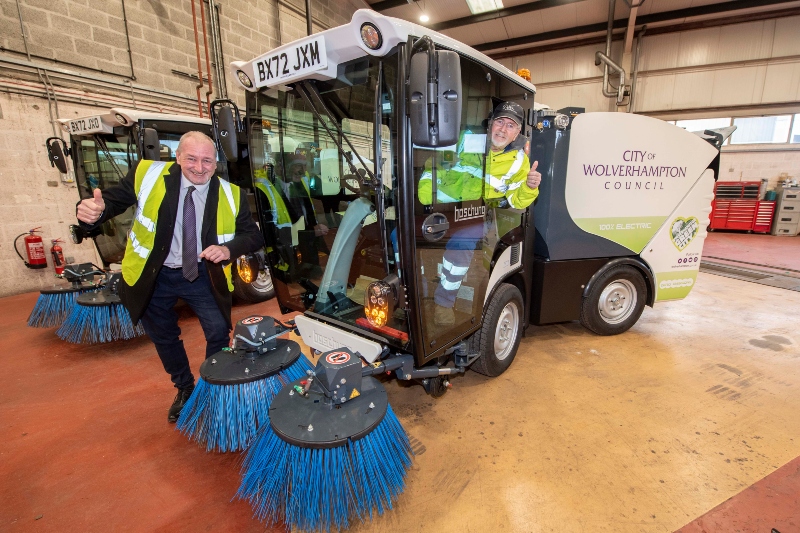The city of Wolverhampton will now be both clean and green thanks to a quartet of zero emission road sweepers.


The four new battery electric vehicles (BEVs) have replaced old diesel-powered sweepers as part of City of Wolverhampton Council’s fleet electrification programme.
The BEVs will offer quiet, efficient and emission free sweeping of pedestrian areas, including the city centre and the city’s road system, throughout the year.
The council has made a pledge to become net carbon neutral by 2028 and is working on transforming its fleet. It currently has around 450 vehicles, which are responsible for emitting 2,500 tonnes of carbon dioxide each year.
As part of its fleet electrification programme, the council has replaced nine of its old Meals on Wheels diesel delivery vehicles with zero emission electric vans.
In addition, two electric vans are being used by the council’s parking services team, three are being used by Wolverhampton Homes, our waste team have two in service, one liveried in support of Rainbow City and one used for the council’s new Podback coffee pod recycling service.
Two electric people carriers have gone into service to support children’s services, the travel unit are operating two electric vehicles along with a number of hybrid cars, the parks team use an electric vehicle and a further two are due to be used by the environmental services team.
The council has also installed four electric charging points at their depot as part of the first phase of a charge point roll-out and is supporting staff to achieve new qualifications to ensure maintenance to hybrid and fully electric vehicles can be carried out in-house.
Cllr Steve Evans, cabinet member for city environment and climate change, said: ‘Keeping our city clean is very important for our residents and visitors, and sweeping pedestrian areas and roads is a fundamental part of our service.
‘Replacing our worn-out diesel sweepers with zero emission BEVs is an important part of our climate change strategy and will see a reduction of around 96 tonnes of C02 each year.
‘Not only will the new sweepers help the environment they are also cheaper to run than the older diesel vehicles helping us to make savings. They can operate at a slow speed in populated areas, are quieter for residents and more pleasant for workers to drive.
‘As we work towards becoming net carbon neutral by 2028, we will continue to replace our polluting diesel vehicles with electric ones. We will also be building the infrastructure and staff knowledge we need to help us provide the best service possible for our residents and deliver on our green agenda.’